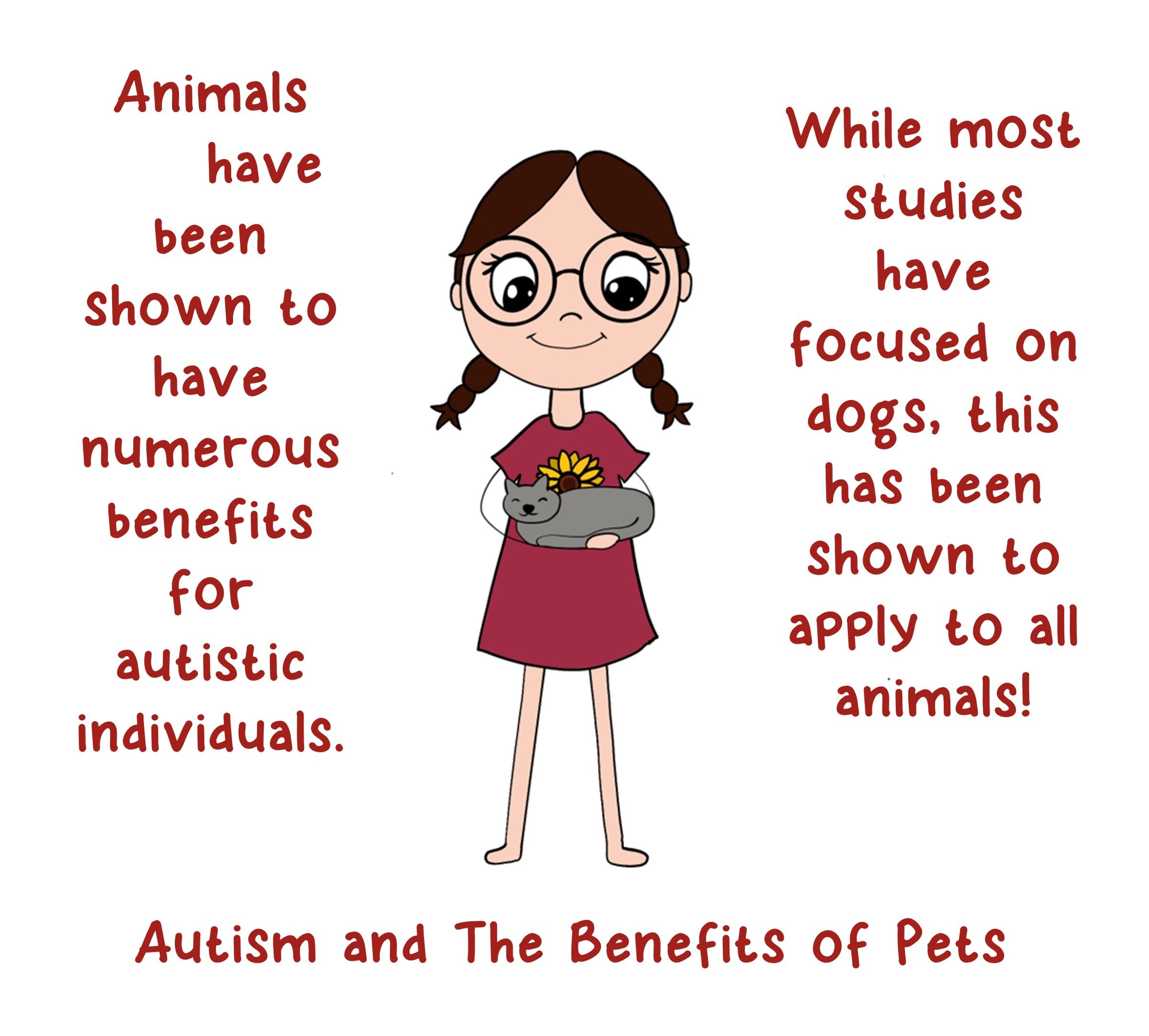There is growing awareness of the benefits of pets and animal therapy for individuals dealing with stress, low mood, anxiety, or other mental health conditions, and who have developmental delays and learning disabilities. In particular, there have been studies showing how interacting with a pet has numerous positives for children (and adults) who are autistic. Growing up, I was always desperate to have a dog, as I sought a best friend and companion, and although we didn’t ever get a dog, having pet cats, and more recently, a bearded dragon, has been so important to me growing up; for example in helping me learn empathy, gather a feeling of purpose, and manage my own emotions.
A study published in 2014 surveyed parents of children who had autism about their children’s interactions with dogs, and 94% of those with dogs said their child bonded strongly with the pet. In families without dogs, 7 in 10 parents reported their child liked interacting with dogs. Other reason has shown how family pets, or even just interactions with animals, can benefit children with autism socially. Pet attachment has also been shown to be related to better mental health in autistic individuals, and quite importantly, the type of pet has been shown to not change the relationship quality. I think this is a really important point, because dogs, which require long term commitment, significant cost, and more higher maintenance care, are often thought of as the only ‘companion’ pet and therefore it is assumed they can be the only animal to provide social and emotional benefits.

More specifically, interviews of autistic pet-owners have found that some of the benefits of pets include the calming sensory effect of holding an animal (perhaps due to the weight on one’s lap, or the warmth, or the feel of fur or scales), the social presence offered without the usual pressure to perform, mask, or conform, and the overall confidence and self esteem boost from having responsibility. It was also found that pets acted as a social lubricant (encouraging owners to connect with their community and family). Other research has focused more on the impact on mental health of pets for autistic adults; again, showing a positive association between the two.
In my experience, pets have brought our family closer. Our cats are certainly an integral part of our family unit, and I feel so much warmth when one of them sleeps with me at night, or wakes me up in the morning. Stroking them is definitely a comfort for me, and when I was young I’d even celebrate their birthdays with cake and a candle! Our cats were always the family’s animals, even if we all had our favourites, but more recently, I got a pet of my own: a bearded dragon. I had been looking for a pet that might provide me with a strong bond, while still being very low maintenance, and after much Googling and advice-seeking, I settled on Timtam. I am currently in hospital and unable to see him,but I think about him so much, and I truly cannot wait to be home and able to care for him once more. There really are so many benefits for autistic individuals to getting a pet, no matter what animal, and if you are autistic, or have an autistic child, I strongly urge you to consider it. Some of the big differences Timtam has made for me:
- I feel a sense of purpose in looking after him, and it motivates me to get up each day
- When I’m lonely, having him by my side or at my desk while I work makes me feel a bit less isolated
- Decorating his home and shopping for him is a fun project
- Learning about reptiles has become a bit of a special interest for me, which is fun, and a nice distraction
- Feeding him twice a day has helped me get into more of a routine, and to stick to timings
- Having the energy to clean his vivarium and generally care for him pushes me to stay well and look after myself
Sources of information:
https://autism.org/pet-ownership-and-autism/
https://www.nature.com/articles/s41598-021-02504-8
https://www.autismspeaks.org/science-news/autism-and-pets-more-evidence-social-benefits

Leave a Reply